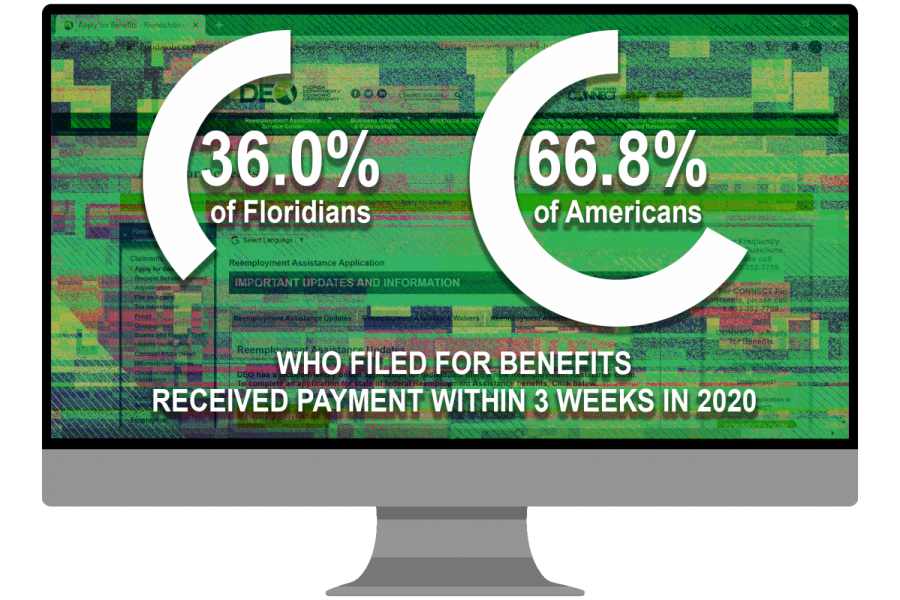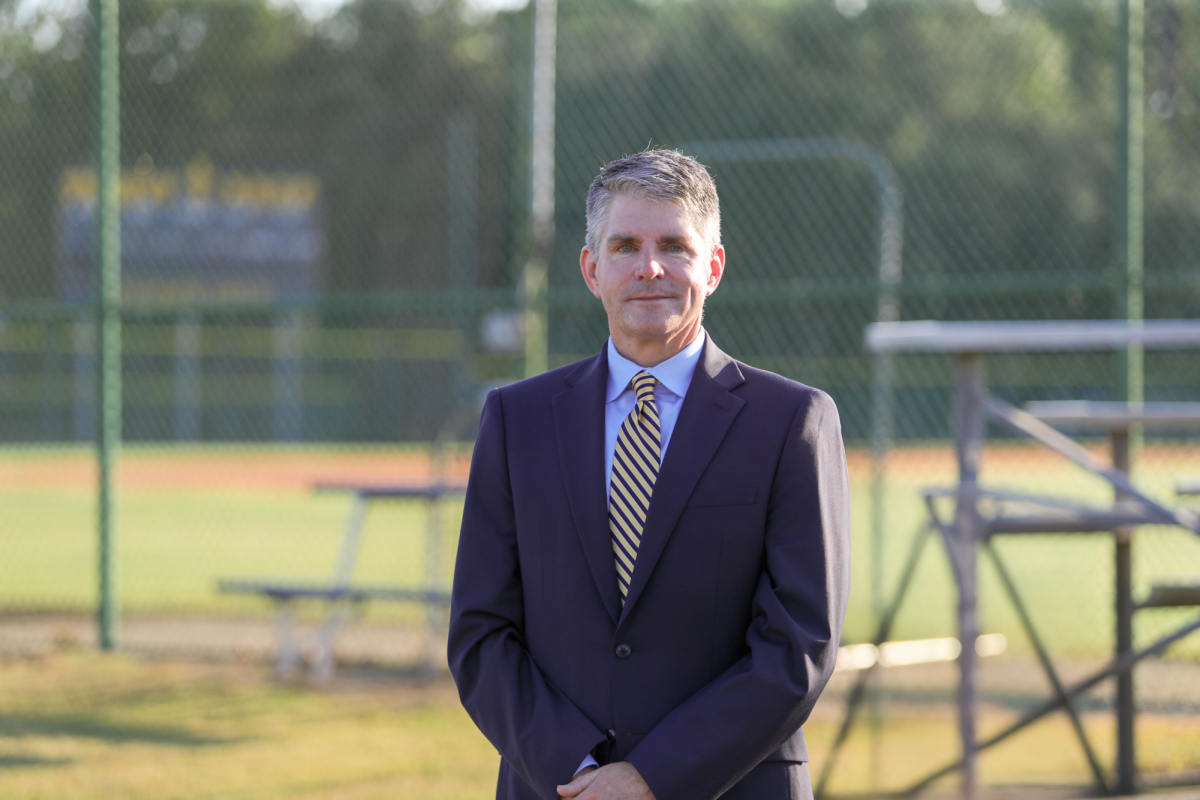When social science teacher Brandon Burmeister’s neighbor lost her job due to the COVID-19 pandemic, she immediately filed to receive unemployment benefits. Not only did it take her three months to get cleared, but by the time she received her first check, six months had already passed since she first contacted the state.
“[By that time] you’re six months back rent, you’re six months back bills,” Burmeister said. “You almost can’t recover from that.”
The pandemic has changed the lives of millions of Americans, and record job losses were recorded during the spring and early summer of 2020. According to the U.S. Bureau of Labor Statistics, the U.S. unemployment rate in April 2020 rose by 10.3%, about 15.9 million people, making the pandemic the cause for the highest recorded month-over-month unemployment increase since January 1948.
The pandemic bombarded the job market here in Florida, as the resulting economic crisis left 1.7 million people without work in April 2020, according to The Florida Times-Union. This was due to the largely tourism-based economy that was almost completely shut down when COVID-19 arrived. The shutdown is likely to have an impact that will last for years, as Central Florida is heavily dependent on tourism. The Orlando Sentinel reported in 2019 that domestic and international tourists contributed over $5 billion in state and local taxes.
With so many people out of work, there was a large demand to claim unemployment benefits, and depending on the state, these processes vary significantly. According to the Department of Labor, Florida is the second worst state in receiving unemployment benefits, with only 6% of residents receiving benefits. NPR’s Laurel Wamsley offers an explanation to this problem in her article entitled “Gov. Says Florida’s Unemployment System Was Designed to Create ‘Pointless Roadblocks.’” In this, Florida Governor Ron DeSantis says that the state’s system of filing and processing unemployment benefits was almost made to have challenges to deter people from using it.
“Having studied how [the unemployment system] was internally constructed, I think the goal was for whoever designed it was, ‘Let’s put as many kind of pointless roadblocks along the way, so people just say, oh the hell with it, I’m not going to do that,” DeSantis said.
Florida State Senator Annette Taddeo also spoke out against the state’s unemployment system’s issues.
“It would keep the politicians looking good by pretending that less people are filing for unemployment when the reality is, even before the pandemic, people were having a really hard time not only applying but [also] in getting benefits,” Taddeo said.
Burmeister explained that the process of filing for benefits in Florida is filled with difficulties and problems from the get-go. The system is fully online, and it frequently crashes because of the overwhelming number of people using it. Once the form makes it into the website, the approval process begins. According to an informational PDF posted by the Florida Department of Economic Opportunity, it stated that there is no timeline available for how long it could take for each claim to be processed due to the fact that each claim is done case-by-case. This means that the process could take longer to take effect than the benefits are even available to some people.
“As you’re waiting for the approval, there’s nothing coming in; you don’t have any benefits received,” Burmeister said.
On top of the long wait times during this process, Burmeister also said that compared to other states, Florida has many more restrictions and caveats that can deny coverage to those who need it most. Having the system only accessible on a frequently broken website makes filing for any benefits impossible when it is out of service. Because of financial issues caused by the pandemic’s impact, staffing is also low and constantly occupied. This leaves people who don’t have access to technology or don’t know how to file unable to get any benefits.
State House Representative Anna Eskamani, whose district encompasses parts of Orlando and Winter Park, has been one of the key figures in advocating for changes to the state unemployment system. One of the main ways that she helps is by communicating directly with constituents who aren’t able to process their requests.
She frequently posts on her Medium.com page providing links to access resources such as virtual town halls with audience questions and job-finding websites. Eskamani was also in constant communication with her constituents on Twitter, updating them daily on the situation.
Last fall, the Orlando Sentinel editorial board endorsed her for her reelection bid in House District 47, highlighting her efforts to directly help people claim their benefits while also striving for state government reform.
“She became a one-woman clearinghouse for Floridians trying to navigate what was universally panned as the nation’s cruelest, most dysfunctional unemployment compensation system,” the editorial board said.
Florida’s unemployment system has had challenges and delays in delivering benefits, even before COVID-19. Although the economy has started to recover and advocates are working hard to create change, the pandemic is still causing problems with no end in sight for the near future.
















